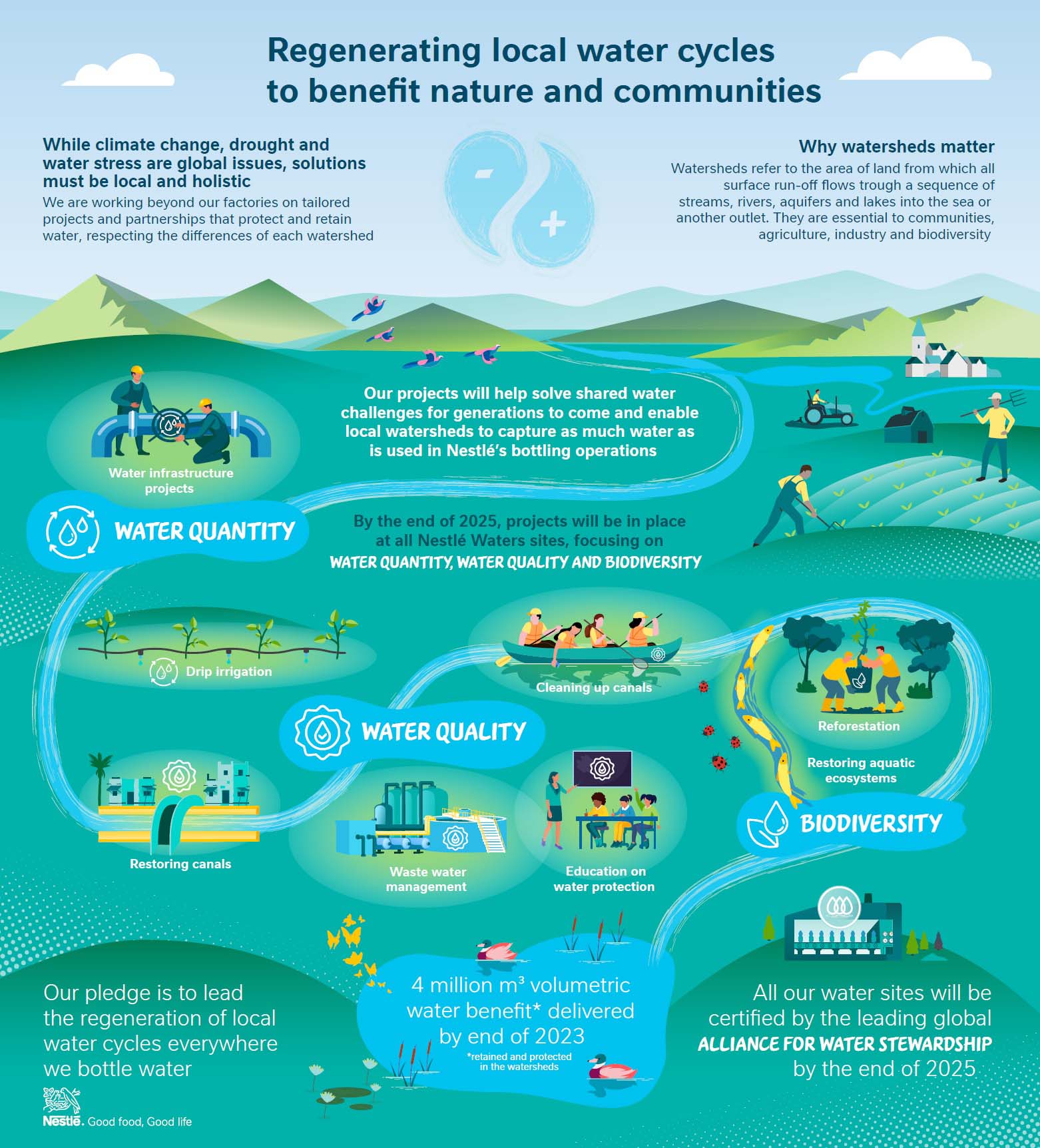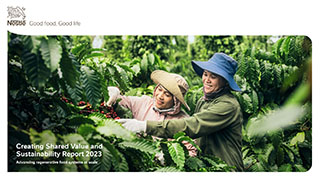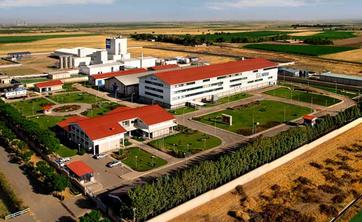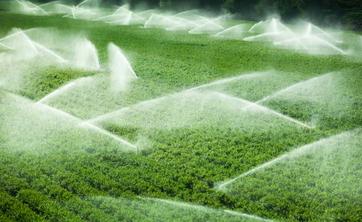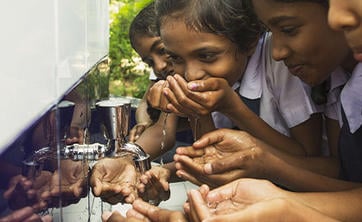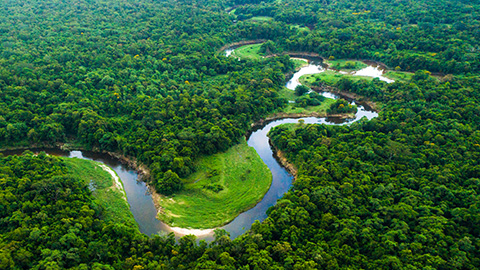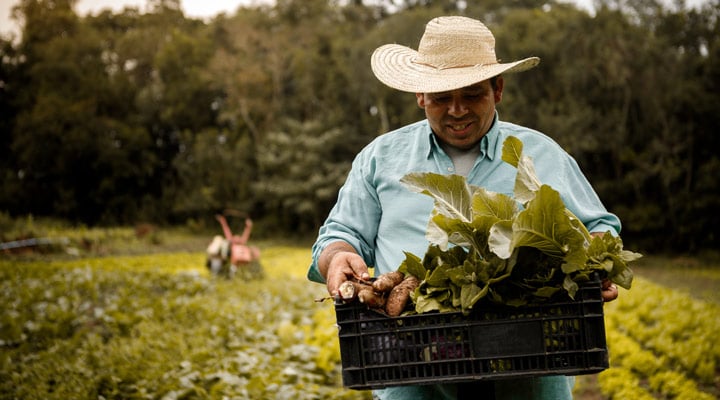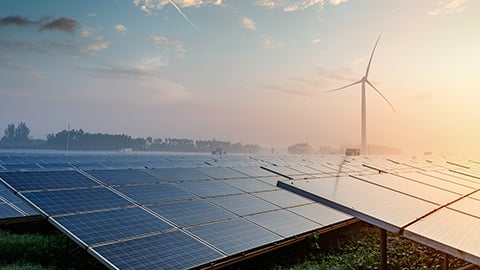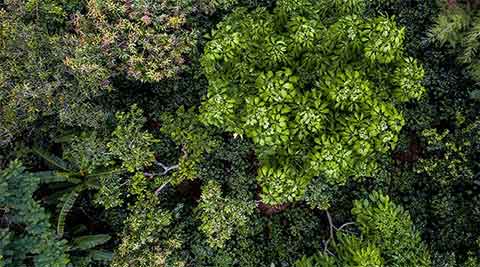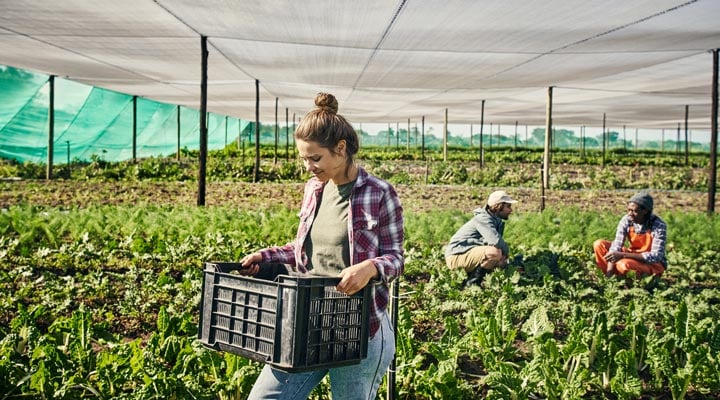The Nestlé Waters Pledge

Our Waters business aims to lead the regeneration of local water cycles to help create a positive water impact everywhere it operates by 2025.
We want to expand our current efforts to manage water responsibly beyond our own bottled-water operations and increase our collaboration with partners to identify and support local solutions. Our aim is to develop more than 100 projects to help nature retain more water than our bottled-water business uses.
Our progress toward better water management in our bottled-water business
Our key actions toward creating a positive water impact
Water stewardship
Nestlé Waters wants to play an active role in helping conserve water resources everywhere we operate. To do so, we will work with partners at a local level to develop tailored solutions.
We use a robust approach built on five steps: saving water, protecting the quality of natural water sources and catchment, sharing our knowledge, contributing to communities and certifying all our sites to the Alliance for Water Stewardship Standard by 2025.
Helping regenerate water cycles
By 2025, we aim to use our expertise to help advance the regeneration of local water cycles by identifying and implementing projects in areas where we operate. We are designing projects which enable watersheds to capture more water than is used in bottling operations, while helping to protect natural habitats. Projects are selected and tailored to address specific local challenges. These are based on a mix of nature-based and technical solutions to improve water quality or quantity and create a positive water impact.
The projects support:
- Reforestation efforts to help prevent run-off
- Wetland restoration and rainwater harvesting
- Drip irrigation to reduce water withdrawals
All of the projects are measurable using the World Resources Institute’s Volumetric Water Benefit Accounting methodology. This provides consistency in analyzing water management activities and helps ensure that such activities address current and future shared water needs and issues.
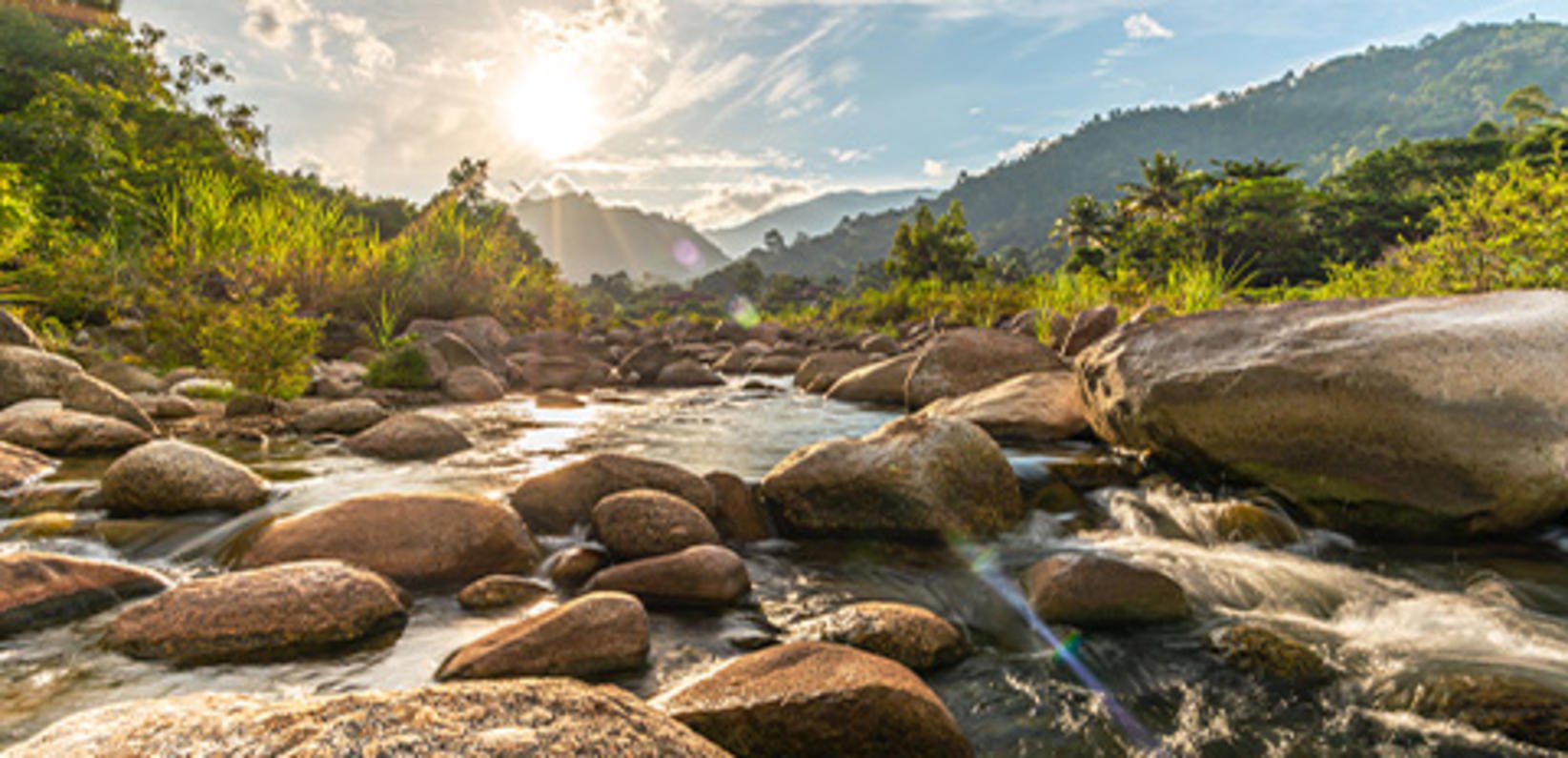
* Water benefit calculated according to the VWBA methodology
Download the full infographic (pdf, 3Mb)
Projects to improve local water cycles
-
Buxton Land conservation (protecting land from development) and natural flood management interventions in Derbyshire, UKWATCH THE VIDEO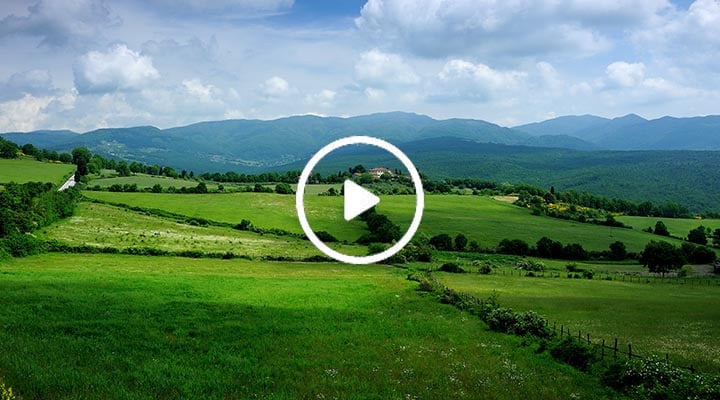
-
Vittel River restoration and renaturation projects in Vosges, FranceWATCH THE VIDEO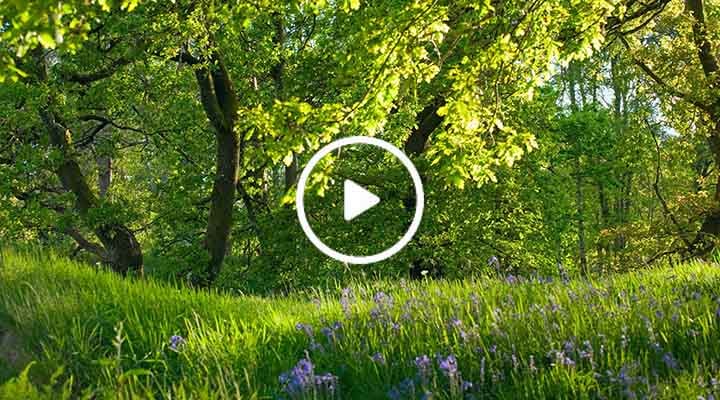
-
Nestlé Pure Life The delivery of water treatment, filtration and pipeline infrastructure for the municipal water supply in Benha, EgyptWATCH THE VIDEO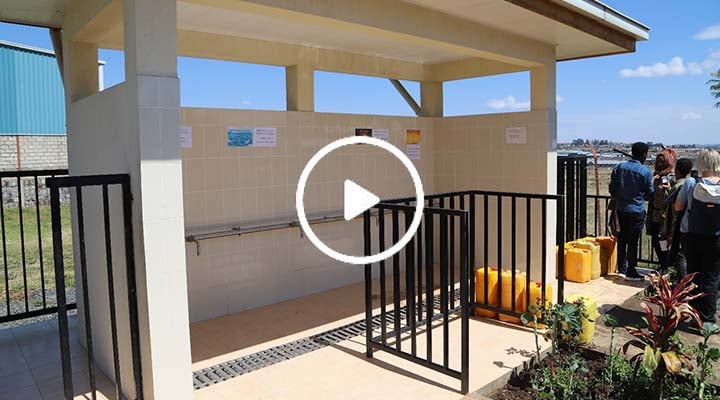
Upper Tunuyan River basin, Argentina
Run-off from free-flowing wells was being lost before it could be used by the local community. Working with the Irrigation Department of Mendoza, we installed manually closing butterfly valves to minimize losses of water.
Benha, Egypt
The Al-Siniti canal had become polluted and silted, with poorly maintained side walls. Our teams removed waste and aquatic weeds, and stabilized the sides to prevent water leakage, cleaning the water and making more available for local communities and farmers downstream.
Sheikhupura, Pakistan
Inadequate irrigation was causing the pollution of waterways and placing unsustainable demand of the water table. We made irrigation upgrades, leading to a reduction of groundwater consumption, the prevention of pesticide and fertilizer runoff, maintaining watershed quality, saving energy and increasing crop yields.
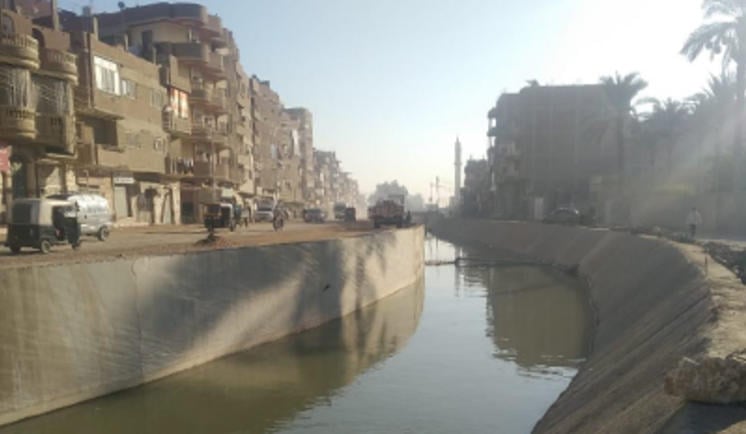
Naleczowianka, Poland
Degraded water quality was affecting the Vystra river, downstream from the municipal waste water treatment plant. We installed a UV lamp to improve the water quality before it leaves the municipal waste water treatment plant, to enable the water quality improvement of the river and its ecosystems.
Mekong, Vietnam
Provincial water management in the Mekong Delta has not kept pace with local agriculture and development demands leading to pollution and water stress in Tan A City. We provided water supplier LAWACO with financial and technical support to treat more surface water instead of groundwater. This will increase the resilience of the watershed and promote biodiversity and is a component of a wider water regeneration program in the delta.
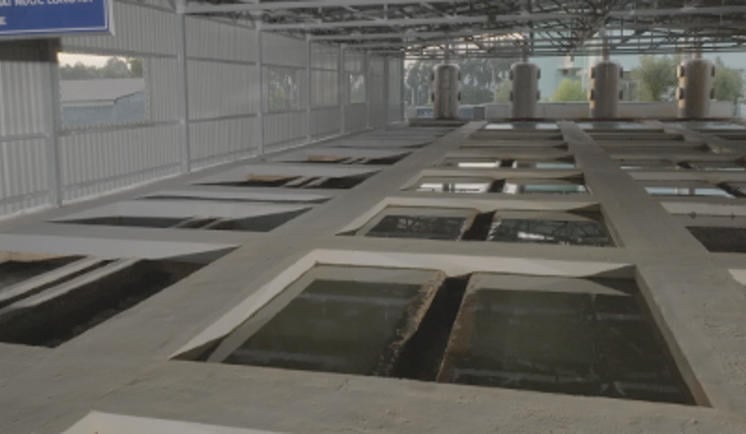
Collaborating to solve the challenge
Water is a shared resource, so caring for it must be done through collaborative actions. Through partnerships in the locations where we operate, we can make a difference to inspire regenerative water approaches.
To review the relevance and sustainability of our Nestlé Waters’ projects, we have established an external panel of non-governmental organizations and academic bodies, including representatives from The Nature Conservancy, the Global World Challenge and the CEO Water Mandate. We will continue to provide this panel with full transparency on our water usage at each of our sites and on what our projects aim to contribute.
In 2023, Nestlé participated in a global working group to design the latest standardized approach and indicators to quantify how sound water stewardship can generate social, economic and environmental benefits. Convened by the World Resources Institute, the consortium updated the Volumetric Water Benefit Accounting standards, known as VWBA 2.0, enabling companies and communities to assess and measure quantitative benefits derived from water-related projects.
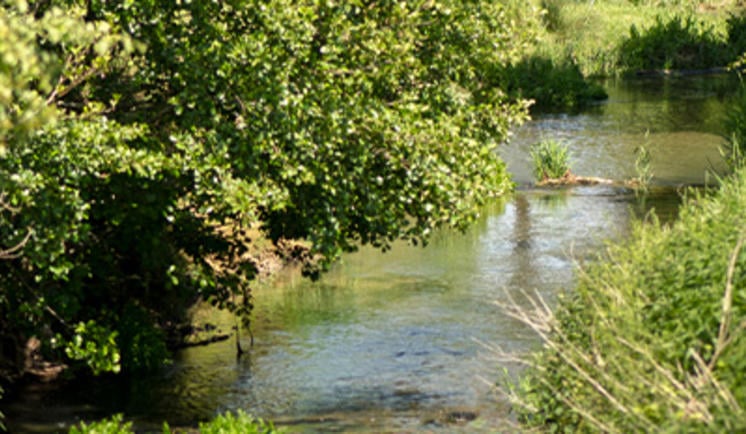
As a business continuously working toward protecting of the quality of natural mineral waters and water stewardship, we want to go beyond the conservation of water sources to help regenerate and restore water cycles in areas where we operate.



